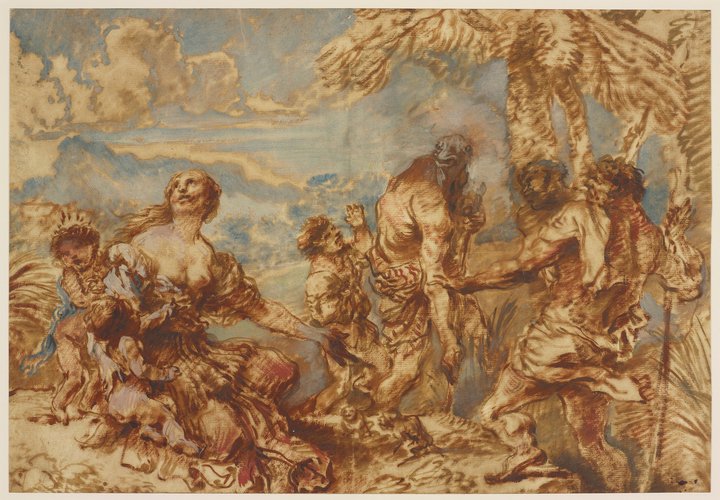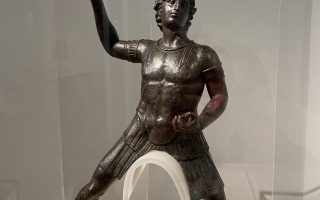During the Hellenistic period, which starts at the death of Alexander the Great in 323 BCE, Greek poetry flourished in new directions. It reflected on the natural, physical landscape in ways Greek poetry had not before. The rise of pastoral poetry – poems about the idealized shepherd reflecting on nature – can be attributed to this period. But the Hellenistic age also brought us female poets who made significant and lasting contributions. In this guest-blog Jon-David Hague tells us more about the poetry of Anyte, one of those women poets.
She came from the Arcadian city of Tegea on the Greek Peloponnese, which today is less than an hour’s drive north from Sparta. We know almost nothing about Anyte but estimate she lived and wrote around 300 BCE, at the start of the Hellenistic period. In fact, we have only a few of her poems, but that is still more than any other ancient Greek female poet aside from the well-known Sappho, who lived on the Greek island of Lesbos in the late 7th century BCE.
While it is interesting as to why we still have poems of hers today, first I want to introduce you to what her poetry felt like. Anyte wrote epigrams, which are short poems written in couplets that have a hexameter line followed by a pentameter line, like this (“–” is a musical measure twice as long as “u”):
– uu –uu –uu –uu –uu – –
– uu –uu – || –uu – uu –
Try it. You can hear yourself singing
“da ditty da ditty da ditty da ditty da ditty da da
da ditty da ditty da (pause) da ditty da ditty da”
Let’s look at one of her poems and work towards getting a sense of it. Below, a stylized American English pronunciation first follows the ancient Greek with the bolded parts helping with the metrical longs (the “da’s”). Then my attempt at an actual poetic translation (which is always a re-seeing).
ἕσταθι τᾷδε, κράνεια βροτοκτόνε, μηδ᾽ ἔτι λυγρόν
χάλκεον ἀμφ᾽ ὄνυχα στάζε φόνον δαΐων,
ἀλλ᾽ ἀνὰ μαρμάρεον δόμον ἡμένα αἰπὺν Ἀθάνας
ἄγγελλ᾽ ἀνορέαν Κρητὸς Ἐχεκρατίδα.
Hestathi tie-deh, craney-a brotok-toneh, meyd’ eti lugron
chalkeon amph’ onukha || stadze phonon da-ee-own
all’ ana marmareon domon hemena aipun Athanas
ang-ell’ anore-an || Kreytos Ek-hek-kratida.
Stay here where you are, Spear, wooden manslayer,
And stop dripping enemy death, painful round your bronzed tip.
But lie there now high in the bright house of Athena
and tell everyone of the man-ness of Cretan Echekratidas.
As you read and re-read the poem, you might want to consider that epigrams were originally written on stone: they were in essence dedications meant to last forever. Likely, Anyte had this idea also in mind. Imagine walking by Athena’s temple in Tegea. You stop. While you stand there, think about this poem. The first two words are a command to “Stand/Stop here!” At first, you might think Anyte is telling you, the passerby, to stop where you are, stand there, and read this in front of the temple. But as you keep reading, you see that you, the reader, who now embodies the voice of the poem, are telling this soldier’s spear to stand here/stop here. Maybe you can see the spear inside the temple. You look at it. You see that bronze tip of the spear that must have killed many men. You imagine blood dripping down from the tip. But that was the past. Now the spear is retired and has been put in Athena’s temple to remind people of its owner.
How do we see this poem differently as a woman having composed it? Was Anyte asked to write the poem for the day the spear was dedicated? Did she see the spear in the temple and think to write a dedicatory poem about it? How did she feel about war and does this poem give us any insights? There is much we can imagine from these few words in these couplets that give a glimpse into the Hellenistic period, and which we will explore in another post.




